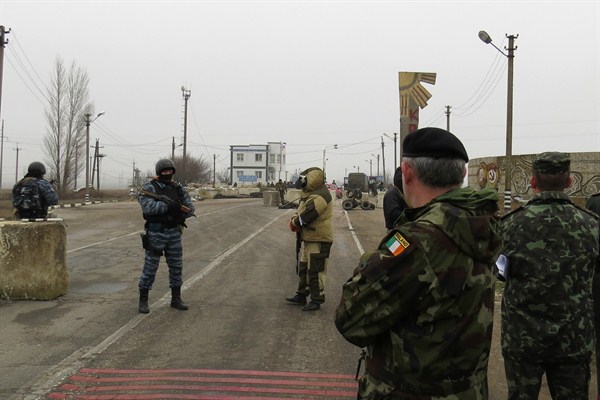Is Ukraine a promising model for the management of future international crises? At first glance, it looks like nothing of the sort. Kiev is in the middle of a bloody military campaign to regain control of towns and cities in the east of the country from pro-Russian rebels. More and more civilians have been caught in the crossfire. As Janek Lasocki of the European Council on Foreign Relations has noted, roughly 200,000 Ukrainian citizens have registered as internally displaced persons inside the country or moved to Russia. “In the past week alone,” he adds, “over 10,000 more have formally registered, and some estimate the total number could be two or three times larger.”
Meeting at the World Cup final in Brazil, Russian President Vladimir Putin and German Chancellor Angela Merkel agreed that the crisis has “a tendency toward degradation.” There is little else that Russia and the West have managed to agree on, however. The European Union announced new sanctions against rebel leaders last week. Although Moscow closed several major border crossings last week, Ukraine claims that reinforcements and supplies for the rebels continue to flow in from Russia.
There is still a danger that this conflict could escalate further, possibly without much prior warning. Moscow has accused Ukrainian forces of firing on a village in Russia, killing one, and the Kremlin is reportedly considering limited precision “answering strikes” as a riposte. Yet the most striking feature of the crisis is just how limited it has remained to date.

